Human beings are wired for connection. Having strong communities in which members looked out for each other is what kept our ancestors alive, and connection is still key to our well-being. We want to feel a sense of belonging within a group of people who share our values — whether that’s sports fans, a farming community, political party, or Swifties (Taylor Swift fans, if you haven’t heard).
Unfortunately, however, we are also wired to defend our own groups and demean and destroy other groups with different values. In the 21st century, that kind of behavior often plays out on social media and has become known as toxic tribalism. It’s closely intertwined with cancel culture psychology, which drives people to band together to write off others who appear to threaten what they care about. We’ve seen these attacks taking place with people being canceled for a host of different, often absurd reasons.
Cancel culture is tribalism.
Feeling strong negative emotions, such as outrage, disgust, and fear is a key aspect of cancel culture psychology. These emotions motivate cancelers and social groups to not just reject someone or something, but also to punish them, through actions ranging from removing financial support (recent GoFundMe fiasco related to Canadian Truckers) to getting an individual fired or ruining their reputation (too many to list now). Cancel culture psychology gives people tacit permission to bypass empathy and forgiveness in favor of righteous anger.

Theories around the psychology of individual and group identity formation also come into play in cancel culture. Particularly for young people, affiliating oneself with a particular group is part of defining who you are. But in adopting the beliefs and norms of a specific group, individuals can fall into angry, bigoted attitudes. That’s why cancel culture is toxic when practiced through the lens of collective consciousness — an “us vs. them” mentality.
Asset Management
So what does this have to do with asset management, Chris?
Well, when we view the world through this tribalistic lens, we can understand much of the geopolitical world we’re experiencing today by understanding it within the above context.
Here, take a look:
Germans Seize Russian Billionaire Alisher Usmanov’s Mega-Yacht
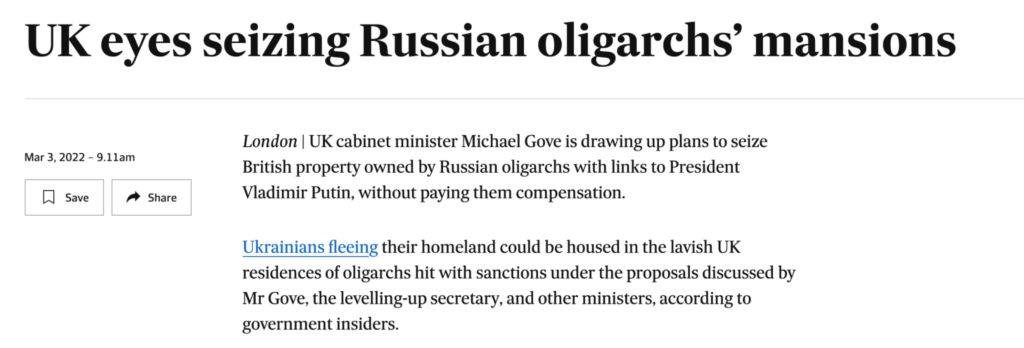
And this…

We can and some have asked the question. Why weren’t Americans’ assets seized when the US invaded Iraq or a dozen other countries? Why weren’t British or European citizens assets seized when NATO bombed the Balkans?
The answer lies in two things. One is that the West controls the media and hence the narrative, and the second is that those aggressed upon haven’t the resources to seize anything. The winner takes the spoils.
That aside we’ve seen this playout before and there are some lessons to be learned.
11 September 2001.
After that fateful day Middle Easterners were immediately targeted in the West. You may recall the freezing of bank accounts and other assets in the United States and the United Kingdom.
In a shoot first, ask questions later manner many Middle Eastern and even some Western but muslim businessmen had their assets frozen. No due process, nothing. One day it was available, the next it wasn’t.
Then the inevitable occurred. Money fled these centres for the one place that has increasingly become a sort of Switzerland of the Middle East. Dubai.
Banks flush with billions of dollars of cash pouring in had plenty to lend, and so they did. It created one of the biggest property booms we’ve ever seen. This, coupled with the onset of a commodity bull market which ended just over a decade later, and the stage was set.
Now, back to our current situation. We’re at the onset of a massive commodity boom. Where do you think Russian oligarchs are going to shift their US, Canadian, and UK assets to?
Bear in mind that as the United States increasingly relinquishes its role as the primary security guarantor in the Middle East, China and Russia are pursuing a unique opportunity to reorient both Iran and its regional rivals into an emerging Sino-Russian Eurasian architecture. Outreach to the Middle East by the Sino-Russian partnership, a systemic coordination dubbed by strategic analyst Velina Tchakarova as the “Dragonbear,” has been well underway for at least a decade. Expect it to accelerate.
Capital is fleeing Europe.
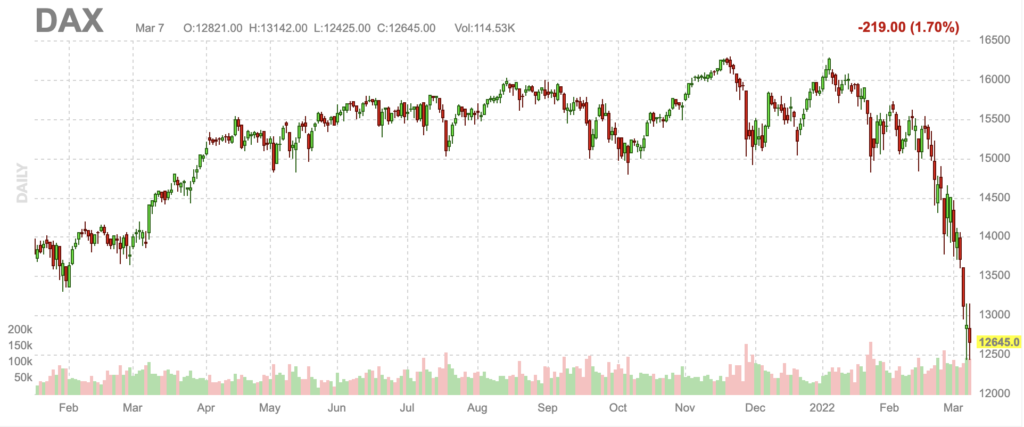
Or take a look at the Euro Stoxx 50…
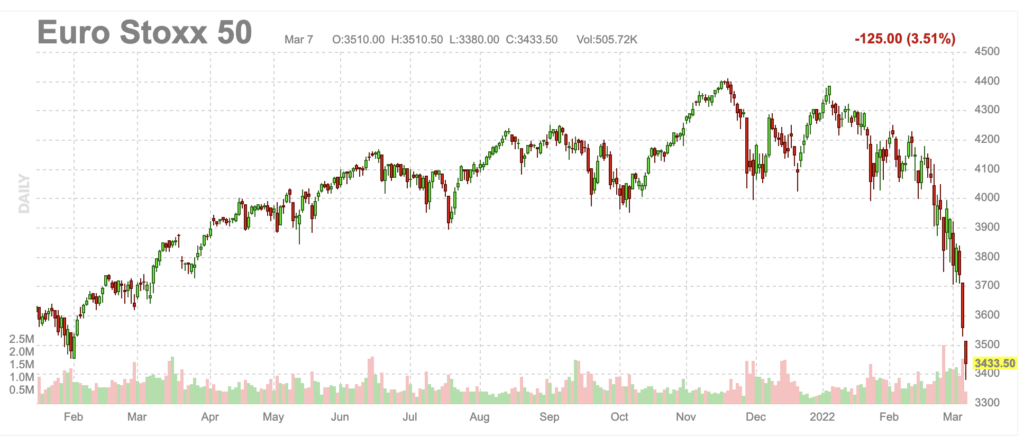
And the euro. What a ball kick!
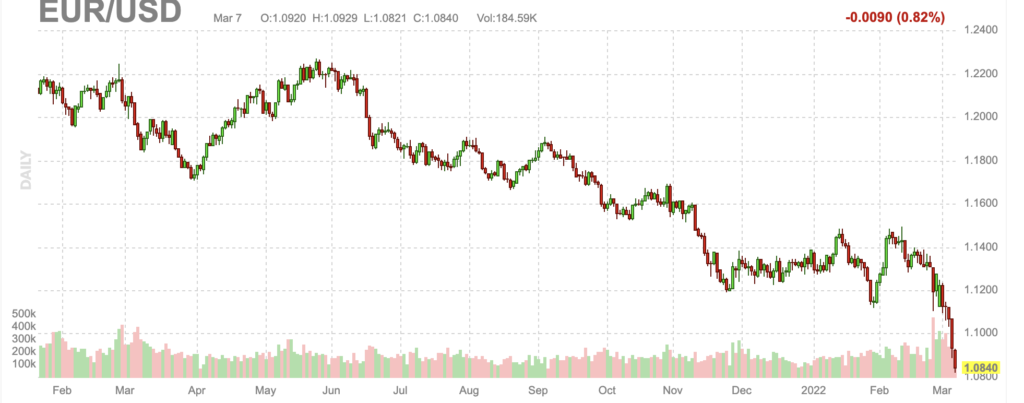
Why Dubai?
As I’ve hopefully pointed out, we are entering or have entered a period of time when tribalism is making a comeback. You see, if you’re a Russian with money, you’re suddenly the new “unvaccinated” persona non grata. You could well hate Putin with a passion that’d tear the head off a wild boar, but it doesn’t matter. You’re a Russian. Tribalism, remember?
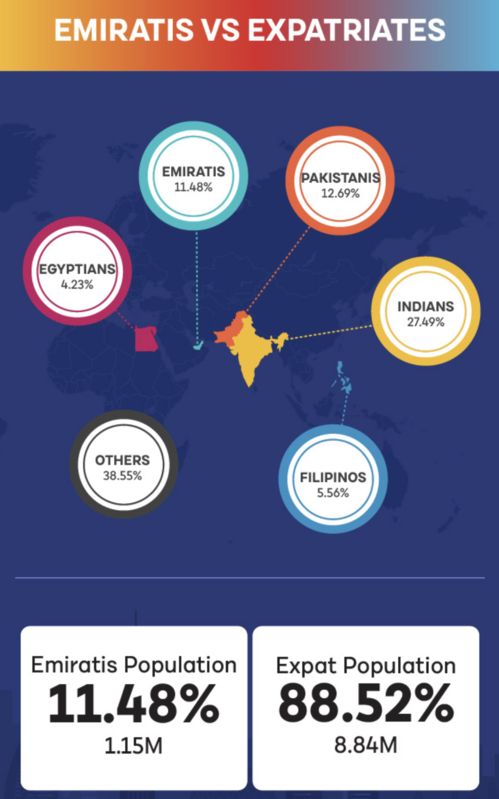
And which presstitutes of the MSM are so eager for you to hate Russkies? The Western media. So the US doesn’t look so good. Europe looks as awful as I’d look if I drank a bottle of Kalashnikov vodka and tried singing the Russian national anthem. So Europe’s out. Which is why the euro is imploding.
Where on earth do you run and hide?
You know the answer, don’t you? This is a September 11th redux. That was Arabs in the firing line. This time it’s Russkies.
You see, the thing about Dubai is this…
Ethnically it can’t really get all nationalistic, raise the flag, and say I’m with [insert the current narrative].
The place is pretty multicultural and most importantly the Emiratis are just over 10% of the population.
Also, I think this is important. Until recently it’s been impossible to become a citizen of the UAE. So everyone living there is doing so on a visa of some sort which needs renewing. Now, imagine shutting down the incentive process to actually being there (which, if we’re honest, is to make money and keep it) which is largely tax-driven and the place simply ceases to exist. So they’re going to have to be friendly to all parties, Russians included.

